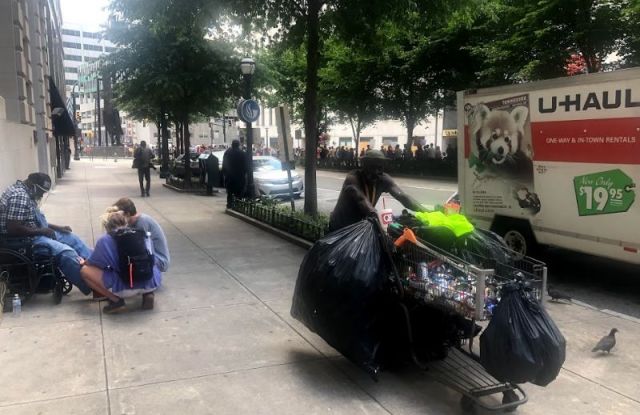Racial Reconciliation on an Interpersonal Level


I’ve spent the past twelve years immersed in predominantly white spaces. As a result, most of the friendships I’ve built over the years are with white people.
This is a blessing. Not because they are “white” and somehow “elevate my status in the world,” but because if we are to see racial reconciliation on an interpersonal level, we have to move beyond superficial and stereotypical knowledge of one another and into deep, personal, intimate relationship.
Relationship is key and it is healing. For it is in intimate relationship with one another that we are truly seen, known, heard, understood, and not judged. It is where we are loved. And we must be a people who work to remove all that hinders love.
Here are a few things that I have found to be hindrances to the kind of love that brings racial reconciliation on an interpersonal level.
1. Failure to Weep with those who Weep
In the week following the murder of George Floyd and the subsequent protests that broke out in Minneapolis and other cities across the nation, I spent a lot of time weeping and, at the same time, deeply conflicted over the responses I saw from so many white people across social media.
I knew that, for as many black people as there were raging, there were just as many of us at home, alone, weeping and I personally didn’t not want or need people to rage on my behalf. What I needed and earnestly sought were people who would weep alongside me.
Anger is easy and requires so very little of us. People get angry all day, everyday. Weeping, on the other hand, requires something to actually break in us. It requires us to feel another person’s pain at such a level that we cannot staunch the flow of our own tears and grief.
This kind of transfer and sharing of pain is born out of true, genuine friendship and relationship. And if you have yet to weep with the black community in this, then I would encourage you to sit before the Lord and ask Him why.
2. Temptation to Withdraw
There is great temptation to withdraw from what is happening and to shrink away and hide out in the back and wait until it all “blows over,” but dear brother and sisters, I implore you to continue engaging in conversation and in the work that needs to be done.
We need each other. Just as “the eye cannot say to the hand, ‘I don’t need you!’ and the head cannot say to the feet, ‘I don’t need you!,’ if we are members of the body of Christ, then white people cannot say to black people, ‘I have no need of you,’ and black people cannot say to white people during this time, “I have no need of you.”
Black people “know and see in part” just as white people “know and see in part.” We need each other. And we have to be willing to engage in conversations with one another, despite how uncomfortable it may be or get at times.
3. Cancel Culture and the New Unpardonable Sin
Cancel Culture is rampant in our society and it has seeped into the church and into our interactions with one another. Let me be the first to say, if not one else has, Cancel Culture is demonic and not of the Lord!
We as a people have to be willing to cultivate genuine relationships with one another where there is FREEDOM to be wrong and to say things in error WITHOUT fear of being rejected, cut off from relationship, and cast out of our churches, communities, and organizations.
That is not our way! Someone recently referred to racism as “the new unpardonable sin” and I have seen this lived out over the last few weeks.
Racism in NOT the unpardonable sin and responding to people like it is, is ungodly and unbiblical. Before racism is systemic, it is an issue of sin that resides in the hearts of men, and that is what God is ultimately after. Not systems and societal structures.
Yes, God cares about systems, but he died for sin. And in the exposure of people’s sin, we are still called to love one another deeply, restore them gently, and walk out Matthew 18 with them. That has not changed. Even in this. Perhaps, especially in this.
We have to see racism as (1) the demonic force it is and (2) a sin issue in the hearts of people and learn what it looks like to call it out from a place of genuine love, grace, mercy, and truth, restoring one another gently, and reconciling people, first, back to God and then to one another.
This is much easier said than done, but must be done nonetheless if we are to walk in obedience to Christ. For it is still kindness that leads to repentance, forbearance that persuades, and the gentle tongues that break the bones.
Comments (7)
Leave a Reply Cancel reply
More Posts
![]()



I’m in Atlanta 🙂 Seth said that you work in the office in Gainesville. We should definitely get together one day. I’m still quarantining for the most part, especially now that COVID cases are back on the rise, but one day for sure!
Girl, where do you live? I want to hang out with you. This is sooooo good. I am just sitting here at my house saying, Amen!!
Powerful.
Thank you so much for sharing your experience, your heart and such great words of wisdom!
Girl! You nailed it. Not just in one part but all! We cringe at all this virtue signaling but what you wrote gives us a better option. Thank you for taking the time to write.
Again, a great thought provoking message. I do hope your voice gets heard by more people.
LaShondra, I have been weeping and your posts have helped me to articulate all that is swirling inside. Thank you for sharing your heart and putting into words the heart of our Father.